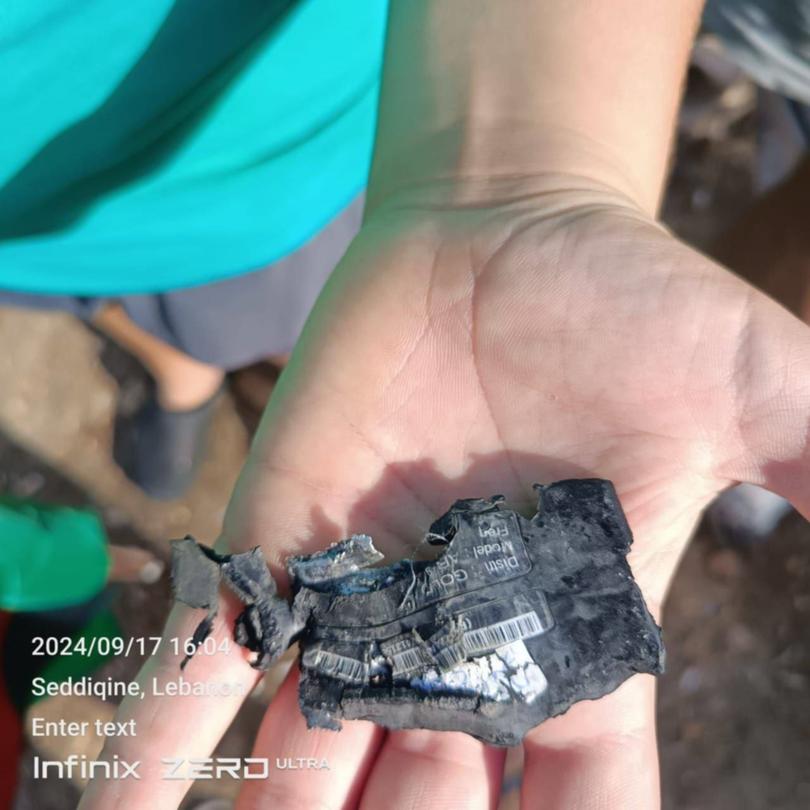MARK ALMOND: Pager attack an ingenious strike. But how long until Putin starts blowing up his foes’ iPhones?
MARK ALMOND: For all the brutal ingeniousness of the pager attack, the consequences for regional security could be dire.

When the Japanese Navy Air Service bombed Pearl Harbor in 1941, their goal was to knock out America’s air power in the Pacific and prevent Uncle Sam from joining the Second World War.
They achieved precisely the opposite.
Roused to indignant fury, the American public were instantly committed to the Allied cause – and Japan found itself facing a new and mighty enemy.
Sign up to The Nightly's newsletters.
Get the first look at the digital newspaper, curated daily stories and breaking headlines delivered to your inbox.
By continuing you agree to our Terms and Privacy Policy.In Wednesday’s devastating attack on thousands of pagers operated by Hezbollah terrorists across Lebanon, I fear we have witnessed the Pearl Harbor of the 21st century.
The operation was of course spectacular on its own merits – with at least nine dead and more than 2,750 injured, reportedly including Iran’s ambassador to Lebanon.
Yet its wider significance is certain to resonate in the months and years to come.

If Israel, like Imperial Japan before it, thought this massive attack would serve to dissuade Hezbollah’s fighters from entering a full-scale war with the Jewish state, I fear they will be disappointed.
Already the Islamists will be plotting their revenge – and Israeli PM Benjamin Netanyahu was said to be locked in talks at his defence ministry’s HQ in Tel Aviv over how to respond to a potential escalation.
So how did Israel actually achieve this? There are several competing theories.
One security expert suggested that the Israelis could have planted “old-fashioned explosive booby traps” in the thousands of pagers – which are said to have been delivered to Hezbollah fighters only in recent days.
Another suggestion, more convincing to me, was that the pagers were pre-loaded with a sophisticated computer virus that caused them to overheat, resulting in their lithium batteries catching fire.
This is a known risk of the batteries used in many electronic devices – and is part of the reason why airlines refuse to let passengers carry laptops in their checked luggage.
However Israel carried out the operation, it’s ironic that Hezbollah’s militants only recently swapped mobile phones for pagers in the belief that they were more secure.

Famously, mobiles carry GPS software that allows the devices – and therefore their users – to be tracked anywhere in the world.
Six weeks ago, Hamas’s political chief Ismail Haniyeh was hunted to a guesthouse in the Iranian capital of Tehran – and eliminated.
Experts believe his assassination was possible only because his phone was being tracked.
The truth is that Israel excels at precisely this kind of warfare.
Decades of facing down hostile neighbours that vastly outnumber its own citizens has led the embattled Middle Eastern democracy to develop a fearsome array of sophisticated military tools, from nuclear missiles and tanks to cyber-weapons.
Combined with this is the ruthlessness of its famed secret intelligence agency, Mossad, in tracking down and eliminating its enemies, from the perpetrators of the Munich Olympics massacre onwards.
As we have seen, Mossad always gets its man – or men – in the end.

So what next? If reports are right, and one in 30 of Hezbollah’s 60,000 fighters have indeed been put out of action thanks to the pager attack, that will present a severe impediment to the group’s operations.
The leadership will also be asking searching questions about how to communicate securely with its fighters in future.
With Hezbollah’s military organisation disrupted, the Israelis might decide to invade a portion of southern Lebanon to create a “buffer zone” that could protect civilians in northern Israel from rocket attacks.
I have my concerns about this “contained” approach.
For all the brutal ingeniousness of the pager attack, the consequences for regional security could be dire.
Instead, the pager operation is far more likely to be the prelude to another all-out Israel-Lebanon War – with grim consequences for world peace.
Hezbollah’s allies, Iran and Syria, will inevitably be worrying that Israeli intelligence could do the same to them.
But even those Arab countries with diplomatic relations with Israel, such as Egypt and Jordan, must now be asking themselves how safe they really are – and whether or not their communication networks are secure.
This will weaken Israel’s ability to build friendships in the region. And there could be consequences for us, too.
Western democracies will already be assessing what this novel form of warfare means for them – and how they might be able to copy Israel’s methods.
History teaches us that no new military technique remains a monopoly of its inventor for long.
How long before Vladimir Putin or Xi Jinping works out how to make millions of iPhones around the world burst into flames in the pockets of their foes?
Mark Almond is Director of the Crisis Research Institute, Oxford
